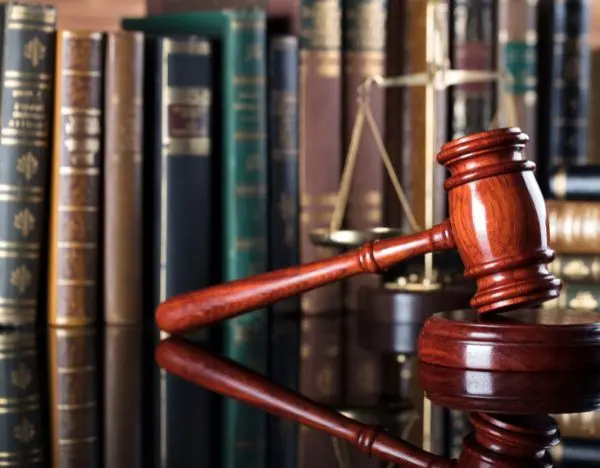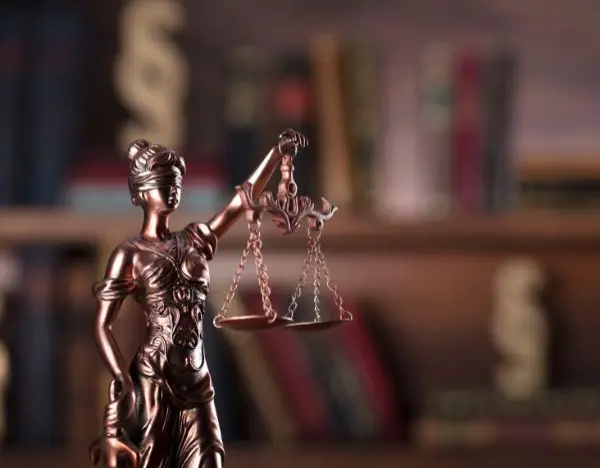Accidents happen every day, leaving individuals injured, confused, and unsure about their legal options. If you've been hurt due to someone else's negligence, you might wonder, "Do I have a personal injury case?" This question is crucial in determining whether you can seek compensation for your injuries and losses. In this blog post, we'll explore the factors contributing to a valid personal injury claim, focusing on construction and car accidents.
What is a Personal Injury Case?

A personal injury case arises when a person suffers harm due to another party's negligence or intentional actions. These cases can stem from various incidents, but two common types are construction and car accidents. If you've been injured in either of these scenarios, you might have grounds for a personal injury case.
Common Types of Personal Injury Cases
While we've focused on construction and car accidents, it's important to understand that personal injury law covers many incidents. Here are some of the most common types of personal injury cases:
Car Accidents
As mentioned earlier, these are among the most frequent causes of personal injury claims. They can involve collisions between vehicles, pedestrian accidents, or accidents with cyclists.
Construction Accidents
These often involve falls, equipment malfunctions, or injuries from falling objects. Construction accidents can be complex due to the multiple parties potentially involved.
Slip and Fall Accidents
These occur when someone is injured on another person's property due to hazardous conditions like wet floors, icy walkways, or poorly maintained stairs.
Medical Malpractice
This involves injuries caused by healthcare professionals' negligence, such as misdiagnosis, surgical errors, or medication mistakes.
Product Liability
These cases arise when a defective product causes injury. This could involve anything from faulty consumer goods to dangerous medications.
Workplace Accidents
While workers' compensation covers many workplace injuries, some may qualify for personal injury claims, especially if third-party negligence is involved.
Dog Bites
Under New York law, owners can be held liable if their dog injures someone and the owner knew or should have known that the dog had "vicious appendices."
Wrongful Death
These cases occur when someone dies due to another party's negligence or intentional act.
Premises Liability
This includes injuries that occur on someone else's property due to unsafe conditions, extending beyond just slip and fall accidents.
Key Elements of a Personal Injury Case
To determine if you have a personal injury lawsuit, it's essential to understand the four key elements that must be present:
- Duty of Care: The defendant (the person or entity you're claiming against) must have owed you a duty of care. For example, all drivers have a duty to operate their vehicles safely, and construction companies have a duty to maintain a safe work environment.
- Breach of Duty: The defendant must have breached their duty of care. This could be through negligence or intentional actions.
- Causation: The defendant's breach of duty must have been a substantial factor in causing your injuries. There must be a clear link between their actions (or inactions) and your harm.
- Damages: You must have suffered actual damages due to the incident. These include physical injuries, medical expenses, lost wages, pain and suffering, and other losses.
If all four of these elements are present in your situation, you may have a valid personal injury case.
Questions to Ask Yourself: Do I Have a Personal Injury Case?
Determining whether you have a personal injury lawsuit can be complex, but asking yourself these key questions can help you assess your situation:
Were you injured due to someone else's actions or negligence?
This is the foundation of any personal injury case. Consider whether another party's actions or failure to act reasonably caused your injury. For example:
- In a car accident, did another driver run a red light or fail to yield?
- In a construction accident, did your employer fail to provide proper safety equipment?
- In a slip and fall case, did a store owner neglect to clean up a spill or fix a broken step?
Did the injury result in measurable damages?
To have a viable case, you must have suffered actual harm. This could include:
- Physical injuries requiring medical treatment
- Lost wages due to time off work
- Pain and suffering
- Emotional distress
- Property damage
Keep in mind that minor injuries or inconveniences may not be sufficient for a strong case. Document all your damages thoroughly.
Is there evidence to support your claim?
Evidence is crucial in proving your case. Consider what proof you have or can obtain:
- Medical records and bills
- Photographs of the accident scene and your injuries
- Witness statements
- Police or accident reports
- Security camera footage
- Expert testimony (e.g., from doctors or accident reconstruction specialists)
Are you within the statute of limitations?
Each state has a time limit for filing personal injury claims. In New York, the general statute of limitations for personal injury cases is three years from the accident date. However, there are exceptions:
- Medical malpractice cases have a 2.5-year limit from the date of malpractice or from the end of continuous treatment
- Claims against a state, a municipality, or a public agency or authority often have a much shorter time limit and may require a formal Notice of Claim.
Was there a duty of care owed to you?
Consider whether the person or entity you're considering claiming against had a legal obligation to ensure your safety:
- Drivers have a duty to operate their vehicles safely
- Property owners have a duty to maintain safe premises for visitors
- Manufacturers have a duty to produce safe products
- Can you demonstrate that this duty was breached?
You'll need to show how the responsible party failed in their duty:
- A driver was texting while driving
- A property owner ignored a known hazard
- A manufacturer cut corners in product safety testing
- An employer failed to follow OSHA regulations
Is there a clear link between the breach of duty and your injuries?
This is known as causation. You must be able to show that the other party's negligence was a subnational factor in causing your injuries.
- Your broken arm was caused by the car accident, not a pre-existing condition
- Your slip and fall on a wet floor directly led to your back injury
Have insurance companies contacted you?
If insurance companies are reaching out to you, it may indicate that they believe you have a valid claim. However, be cautious about speaking with them before consulting a New York City personal injury attorney, as they may try to minimize your claim.
Are your injuries significant or long-lasting?
While any injury can be the basis for a claim, more severe or long-term injuries often result in stronger cases:
- Injuries requiring surgery or long-term treatment
- Permanent disabilities
- Injuries affecting your ability to work or enjoy life
You may have a valid personal injury case if you've answered "yes" to most of these questions. However, personal injury law is complex, and every situation is unique. The best way to determine if you have a case is to consult with a qualified personal injury lawyer who can evaluate your specific circumstances.
When to Consult a Personal Injury Lawyer
While not every accident requires legal representation, there are situations where consulting a personal injury lawyer is crucial:
- Complex Cases: Construction accidents often involve multiple parties, including contractors, subcontractors, and property owners. A New York personal injury lawyer can help navigate these complex relationships.
- Severe Injuries: If you've suffered serious injuries that require extensive medical treatment or result in long-term disability, a New York injury lawyer can help ensure you receive fair compensation.
- Disputed Liability: In car accidents, the other driver's insurance company may dispute who was at fault. An accident lawyer can help gather evidence and build a strong case on your behalf.
- Multiple Parties Involved: In both construction and car accidents, multiple parties may be at fault. A lawyer can help to identify all potentially liable parties to maximize your compensation.
Steps to Take if You Think You Have a Personal Injury Case
If you believe you have a personal injury case, take the following steps:
- Document Everything: Keep detailed records of your injuries, medical treatments, and any communication with involved parties or insurance companies.
- Seek Medical Attention: Even if your injuries seem minor, get a thorough medical evaluation. Some injuries may not be immediately apparent.
- Gather Evidence: Collect any available evidence, such as photos of the accident scene, witness contact information, and accident reports.
- Consult with a Personal Injury Lawyer: A knowledgeable attorney can evaluate your case, explain your rights, and guide you through the legal process.
How a Personal Injury Lawyer Can Help
A personal injury lawyer can provide invaluable assistance in several ways:
- Case Evaluation: We can assess the strength of your case and advise you on the best course of action.
- Investigation: Our New York City personal injury lawyers have the resources to investigate your accident thoroughly, gathering crucial evidence to support your claim.
- Negotiation: We can negotiate with insurance companies on your behalf, aiming to secure a fair settlement.
- Litigation: If a fair settlement can't be reached, your injury lawyer can represent you in court.
- Legal Guidance: We can navigate complex legal procedures and try to ensure all deadlines are met.
Conclusion: Do You Have a Personal Injury Case?
Determining whether you have a personal injury case isn't always straightforward, especially in complex situations like construction accidents or car accidents. While this blog post provides general guidance, every case is unique. The best way to know if you have a valid personal injury case is to consult a qualified lawyer.
If you've been injured in a construction accident, car accident, or any other incident where someone else's negligence may have played a role, don't hesitate to seek legal advice. A personal injury lawyer can evaluate your case, explain your rights, and help you understand your options for pursuing compensation.



